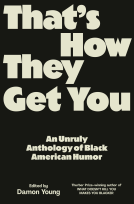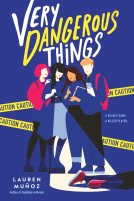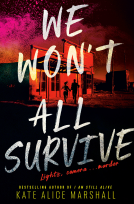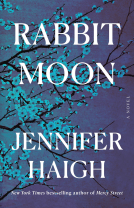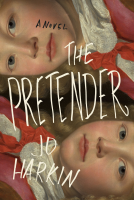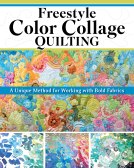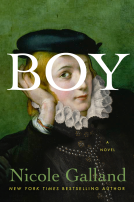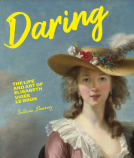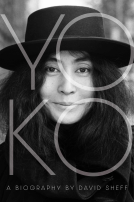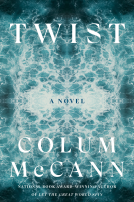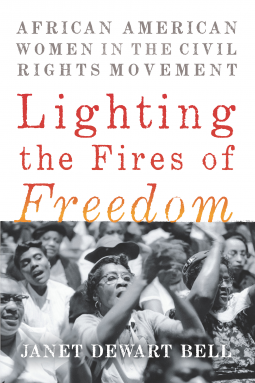
Lighting the Fires of Freedom
African American Women in the Civil Rights Movement
by Janet Dewart Bell
This title was previously available on NetGalley and is now archived.
Send NetGalley books directly to your Kindle or Kindle app
1
To read on a Kindle or Kindle app, please add kindle@netgalley.com as an approved email address to receive files in your Amazon account. Click here for step-by-step instructions.
2
Also find your Kindle email address within your Amazon account, and enter it here.
Pub Date May 08 2018 | Archive Date May 01 2018
Talking about this book? Use #LightingTheFiresOfFreedom #NetGalley. More hashtag tips!
Description
Winner of the Studs and Ida Terkel Prize
Recommended by The New York Times, The Washington Post, Book Riot and Autostraddle
Nominated for a 2019 NAACP Image Award, a groundbreaking collection of profiles of African American women leaders in the twentieth-century fight for civil rights
During the Civil Rights Movement, African American women did not stand on ceremony; they simply did the work that needed to be done. Yet despite their significant contributions at all levels of the movement, they remain mostly invisible to the larger public. Beyond Rosa Parks and Coretta Scott King, most Americans would be hard-pressed to name other leaders at the community, local, and national levels.
In Lighting the Fires of Freedom Janet Dewart Bell shines a light on women's all-too-often overlooked achievements in the Movement. Through wide-ranging conversations with nine women, several now in their nineties with decades of untold stories, we hear what ignited and fueled their activism, as Bell vividly captures their inspiring voices. Lighting the Fires of Freedom offers these deeply personal and intimate accounts of extraordinary struggles for justice that resulted in profound social change, stories that are vital and relevant today.
A vital document for understanding the Civil Rights Movement, Lighting the Fires of Freedom is an enduring testament to the vitality of women's leadership during one of the most dramatic periods of American history.
Advance Praise
“Polls and election results confirm that black women lead in supporting racial and gender equality. Lighting the Fires of Freedom helps to complete history, explain the present, and guide us to the future—through the voices and wisdom of some of the black women who co-created the Civil Rights Movement.”
—Gloria SteinemAvailable Editions
| EDITION | Other Format |
| ISBN | 9781620973356 |
| PRICE | $25.99 (USD) |
| PAGES | 240 |
Links
Featured Reviews
Fifty years ago the Civil Rights Act of 1968 was signed into law.
Most know the name, legacy, and speeches of the Reverend Dr. Martin Luther King.
And most have heard of his wife Coretta Scott King and activist Rosa Parks. But what about the countless other women involved with the Civil Rights Movement? Those who did the grunt work, who put their lives on the line, who strove to achieve what the culture said they could not do?
When I made my quilt I Will Lift My Voice Like a Trumpet I was inspired by the Abolitionists and Civil Rights who I encountered in reading Freedom's Daughters by Lynne Olson. My embroidered quilt includes an image and quote from women who made a difference but are not well known. The quilt appeared in several American Quilt Society juried shows.
When I saw Lighting the Fires of Freedom: African American Women and the Civil Rights Movement by Janet Dewart Bell on NetGalley I quickly requested it. I was interested in meeting more of these courageous, but lesser-known women.
The author interviewed and collected oral histories of nine women for this book:
Leah Chase, whose restaurant was a meeting place for organizers, was a collector of African American art and was commemorated by Pope Benedict XVI for her service.
Dr. June Jackson Christmas broke race barriers to gain admittance to Vassar, spoke out against the internment of Japanese Americans during WWII, was the only black female student in her medical school class, and fought housing discrimination to change New York City Law.
Aileen Hernandez became an activist at Howard University in the 1940s, was the first female and black to serve on the EEOC in 1964, and was the first African American president of NOW.
Diane Nash chaired the Nashville Sit-In Movement and coordinated important Freedom Rides.
Judy Richardson joined the Students for a Democratic Society at Swarthmore College before leaving to join SNCC. She founded a bookstore and press for publishing and promoting black literature and was an associate producer for the acclaimed PBS series Eyes on the Prize.
Kathleen Cleaver was active in SNCC, the Black Power Movement, the Black Panthers, and the Revolutionary People's Communication Network.
Gay McDougall was the first to integrate Agnes Scott College; she worked for international human rights and was recognized with a MacArthur Foundation Fellowship.
Gloria Richardson was an older adult during the movement, with a militant edge; Ebony magazine called her the Lady General of Civil Rights.
Myrlie Evers's husband Medgar was the first NAACP field secretary in Mississippi. She was officially a secretary, but she 'did everything' and later championed gender equality.
I was familiar with Diane Nash, who appears on my quilt. I only knew Myrlie Evers-Williams by association to her martyred husband Medgar.
For me, Evers' statement was most moving, revealing more about her emotional life and feelings. Her husband Medgar, a war veteran, was the first African American to apply to Ole Miss when he was recruited to work for the NAACP.
Myrlie organized events, researched for speeches, and even wrote some speeches while raising their family and welcoming visitors such as Thurgood Marshall to her home for dinner. It was a lot for a young woman. She is quoted as saying,
"It was an exciting but frightening time, because you stared at death every day...But there was always hope, and there were always people who surrounded you to give you a sense of purpose."
Medgar knew he was a target and encouraged her to believe in her strength.
After her husband was murdered in front of their own home, the NAACP would call on her to rally support and raise money, with no compensation. Meanwhile, she felt anger and outrage at what had happened. Medgar had dreamt about relocating to California some day, so Myrlie and her children moved.
Thinking back on the movement, Myrlie recognizes the struggle women had to be recognized for their work. And she bristles at being pigeonholed as Medgar's widow instead of being recognized for her accomplishments. It is wonderful that Myrlie was asked to deliver the prayer before President Obama's inaugural address.
Faith and trust and believe she ends, possibilities await. Be open. Be adventurous. Have a little fun.
That is good advice to us all. But coming from a woman whose husband made the ultimate sacrifice, it is an affirmation of great importance.
I received a free ebook from the publisher through NetGalley in exchange for a fair and unbiased review.
I love how this book sheds light on strong black women who fought for social justice and in their own way, contributed to the civil rights movement in America. These are women whose stories we've barely heard of, yet they exude such strength, wisdom and character. Thank you NetGalley for the advance digital copy in exchange for my honest take on it. There's nothing as exhilarating as knowing more about history and those who shaped it.



